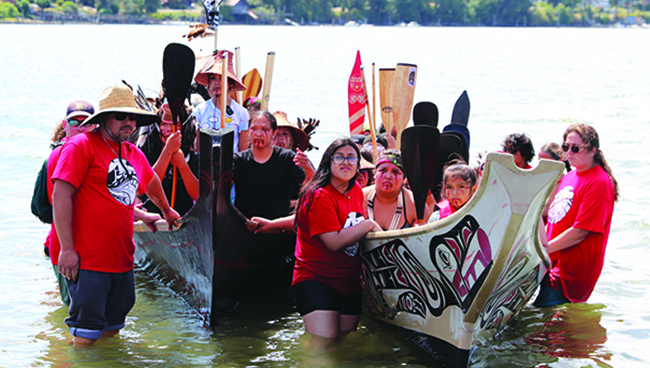
By Kalvin Valdillez, Tulalip News
“My beautiful Indigenous people, we thank you for coming with a good heart and a good mind. We have a place for you to rest, a meal prepared – and we welcome you ashore to our ancestral homeland of the σδυηυβš people.”
From the shoreline of Tulalip Bay, tribal member and cultural bearer, Thomas Williams, spoke traditional Lushootseed to welcome around 30 canoe families as they pulled into the village from the Salish Sea. July 26 was the quintessential PNW summer day – clear skies and warm weather, which provided a gorgeous view for the scores of community members who gathered to watch the canoes arrive at Tulalip.
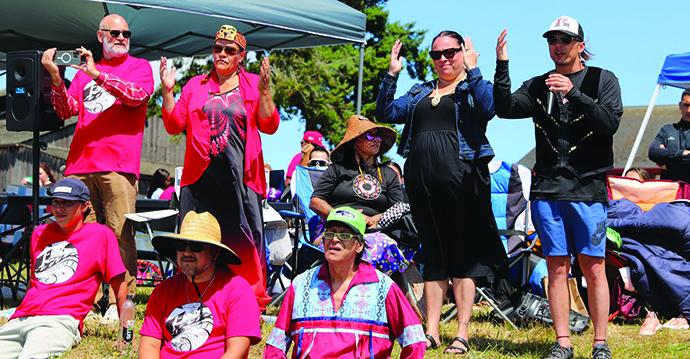
Kids jumped with joy each time they spotted a canoe in the distance, gliding across the glistening waters, each paddle stroke in-sync. As they drew closer to the shore, the people admired the craft and artwork of the canoes, and they cheered jubilantly once the canoe families were granted permission to come ashore. Volunteers from the community met the pullers on the rocky shore and lined up alongside the canoes before hoisting them upon their shoulders to park them safely in the grassy areas of the smokehouse and the Kenny Moses building.
Anticipation and excitement grew within the community in the weeks leading up to the landing at Tulalip. It’s been four long summers since the last canoe journey took place at Lummi in 2019, and the people were ecstatic to see the canoes make their return this year.
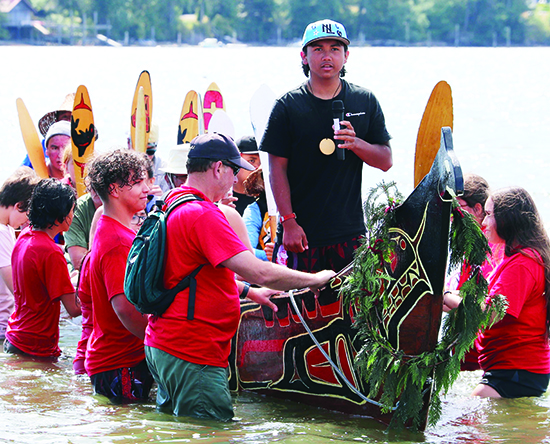
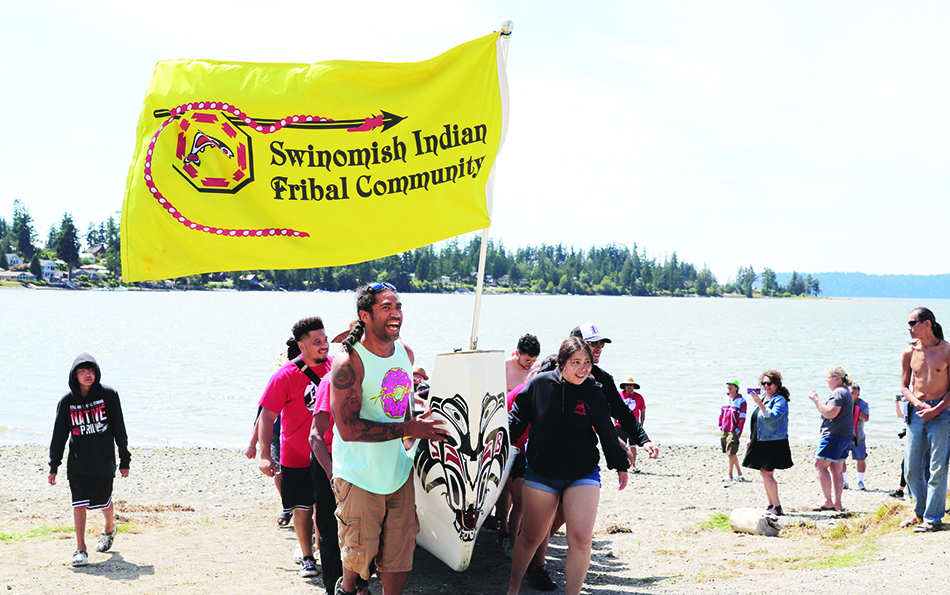
The canoe journey is a cultural revitalization movement that began in the summer of 1989 when Quinault tribal member, Emmett Oliver, orchestrated the first intertribal canoe pull for Seattle’s centennial celebration. Since then, coastal tribes and First Nation bands have alternated hosting duties each summer as the final destination for that year’s journey. After celebrating its 30-year anniversary, the event was put on hold in 2020, and the subsequent years, due to the pandemic. The 2023 Paddle to Muckleshoot serves as the official comeback year for canoe journeys, and hundreds of Natives took to the ancestral highway for some culture and good medicine.

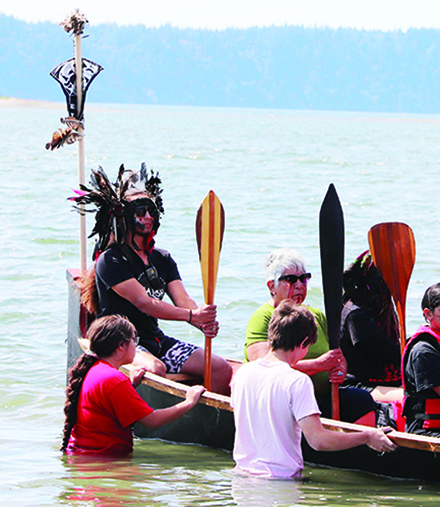
Tulalip began preparations for canoe journey at the top of the year by hosting weekly culture nights, where attendees crafted regalia and various items that could be both utilized and gifted by the Tulalip canoe families. This spring, the Tribe held an awakening ceremony for the tribal canoes, Big Brother, Big Sister, and Little Sister.
At the time, Tulalip Skipper Taylor Henry shared, “The canoes have their own spirits because they were living trees at one point. Waking them up is part of that spiritual connection between us and them, it helps us go smoother on the water. When we take care of them, they take care of us.”
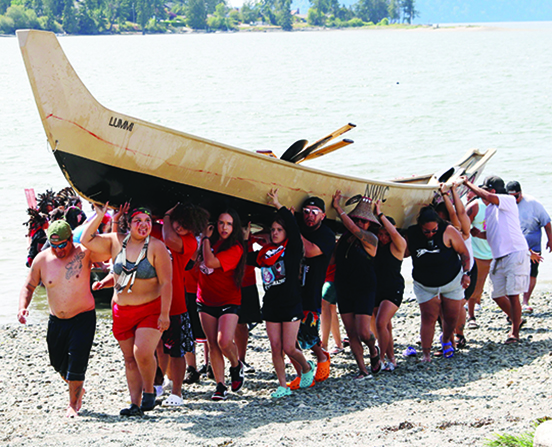
Shortly after the awakening, the Tribe hosted weekly canoe practices to train and build endurance for long distance pulls across the sacred waterways. And weeks prior to Tulalip’s launch date from Lummi, the Tribe organized coastal jams, so that tribal members could practice the songs and dances that would be offered during protocols throughout the journey.
Following the eight-hour pull from Swinomish, the canoe families set-up camp at various locations around the reservation before attending protocol at the Gathering Hall that Wednesday night. The pullers spent the next day getting some well-deserved and much-needed rest before enjoying a coastal jam inside of the Tulalip longhouse on Thursday evening. The canoe families arose early Friday morning and asked permission to leave Tulalip and continue on their journey to Muckleshoot.
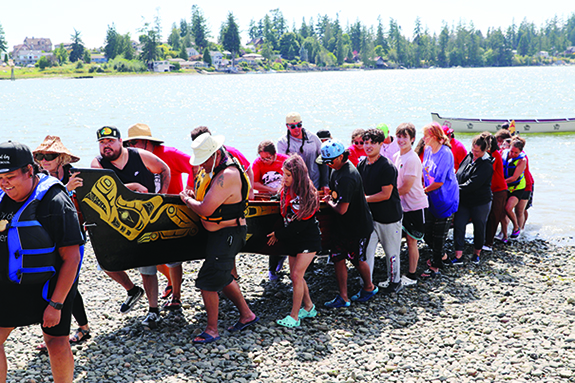
With numerous tribes throughout the region taking part in this year’s journey, there were two routes each canoe family could take depending on their location. The thirty-something canoes that visited Tulalip joined nearly seventy more canoe families at Suquamish before they all departed for the final destination at Alki Beach on July 30.
Canoe Journey ends with an extended stay at the hosting tribe’s rez, where a week’s worth of culture sharing takes place. Each tribe and/or canoe family gets the opportunity to share the songs and dances of their people, and both the Tulalip canoe family and the Fryberg family canoe, Salish Spirit, were allotted time to share during protocol at Muckleshoot. They hit the floor back-to-back as the 48th and 49th groups on this year’s protocol list.
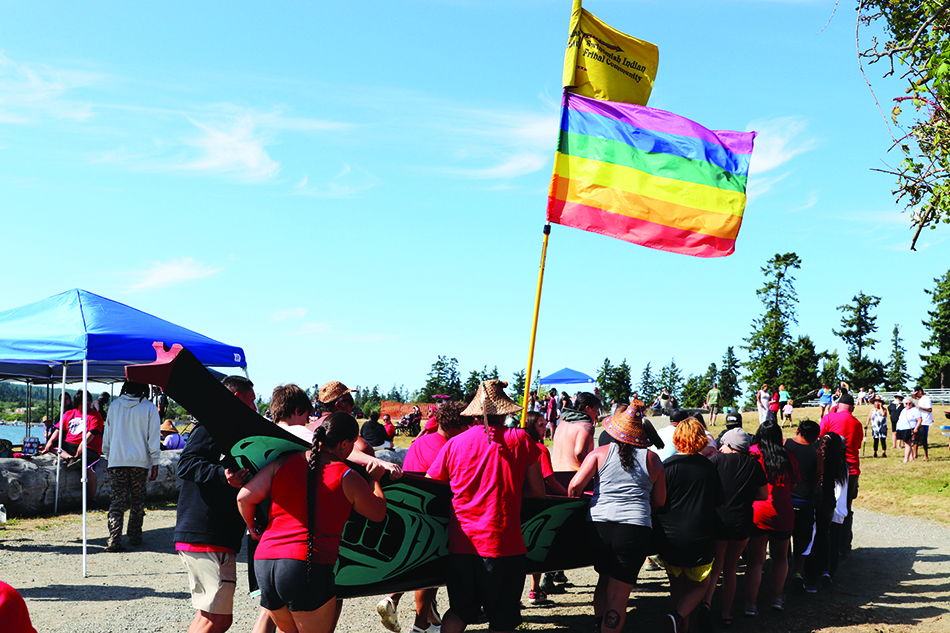
After the canoes landed at Alki, Tulalip tribal member and canoe puller, Theresa Sheldon, took to Facebook to share, “Feeling all the emotions as Tulalip pulled into Alki Beach this morning, our U&A territory! It’s absolutely beautiful to see Tulalip Youth Council on Big Brother! Most of these teens are third generation pullers now. We will never not know a day without our canoes and without the ability to travel on our ancestral highways. May they continue to bless us and guide us in all that we do. Grateful for our skippers and pullers who got us to Alki!”